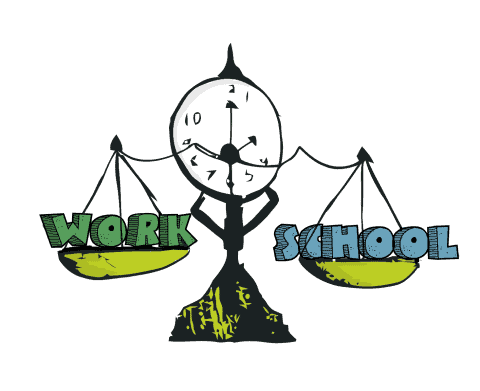With the average tuition and fees for a student enrolled in a full course load at the University of Saskatchewan costing upwards of $6500 a year, many students are seeking extra employment in order to help offset the costs of their higher education.
The life of a university student is already a busy one, filled with exams, papers, lab reports, readings and assignments. It’s a common occurrence to see a university student staying up until the wee hours of the morning to complete all the work that gets assigned to them.
However, with both the cost of living and soaring tuitions, some students are struggling to make ends meet. In Saskatchewan in 2015, students now have to work almost three times as many hours than a Saskatchewan student in 1975 in order to pay their tuition, according to the Canadian Centre for Policy Alternatives.
Shawn Clouthier, a third-year arts and science student in women’s and gender studies, works three jobs in order to pay for their education, sometimes putting in upwards of 20–25 hours each week.
“I unfortunately need to work in order to pay the bills,” Clouthier said.
However, Clouthier also believes that having a job while going to university can be a good thing.
“I would probably still work a bit even if I didn’t have to. Going to work forces you to take a break from school work in a guilt-free way. I’d like to say the extra money is nice as well, but it’s not really extra,” Clouthier said.
Although a lot of university students are now working to pay for their schooling, some students are avoiding having to seek employment. Erickson Ureta, first-year computer science student, thinks there are a few options for remaining unemployed — unfortunately not always available to all students.
“If you know you have enough money saved up or you have other sources of money — for example, your parents — then maybe you’ll be fine in school without a job. Otherwise, [getting a job while you’re in university] is pretty necessary,” Ureta said.
One of the biggest issues that university graduates face once they leave school is unemployment. Post-graduates are having a harder time finding jobs for a variety of reasons. It could be the competition for professional careers in Canada. Or, for second-year psychology student Samuel Rafuse, a huge contributing factor to graduate unemployment is a lack of life experience.
“Working a job in university is almost essential, but so is studying. You mostly need to budget and prioritize. What matters to you most? Experience is more valuable to employers than simply a degree,” Rafuse said.
As Rafuse said, it’s important to find a balance between work and your study. However, that can be difficult to accomplish. Clouthier emphasized the importance of taking care of yourself while juggling a job and university.
“It’s really helpful to look at your schedule and honestly ask yourself how much you’ll be able to handle. And if it ends up being too much, drop some hours, if you can. Just remember that your well-being is most important,” Clouthier said.
Personally, I am also working two jobs, sometimes three, in order to pay for my education. It’s definitely not easy and sometimes sacrifices have to be made in order for me to maintain both my grades and finances. My social life tends to take the heaviest hit. However, I agree with the overall sentiment that working during university is almost necessary, especially if you don’t have financial support from your family.
Scheduling can be difficult sometimes, but balance is important. The best situation is students doing the best work they can do in both their schooling and their job. Clouthier stresses the importance of trying not to take on too much at once.
“If you think that working will be beneficial to you and you can’t foresee it harming your mental well-being, then go for it! But don’t bite off more than you can chew,” Clouthier said.
—
Kay-Lynne Collier
Image: Jeremy Britz / Graphics Editor
Leave a Reply